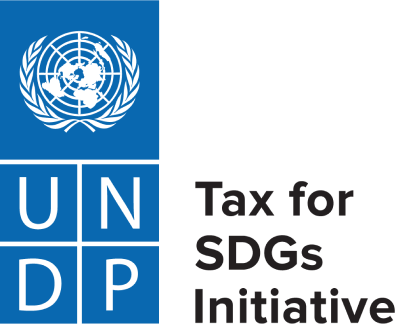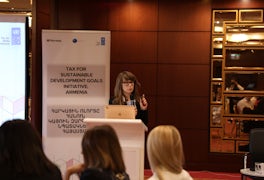UNDP Tax for SDGs launches the SDG Taxation Framework Diagnostics in Angola to help align fiscal policies with the SDGs.
Angola is exploring how the Sustainable Development Goals (SDGs) can be achieved through strategic taxation policies by introducing a pioneering model called the SDG Taxation Framework (STF) diagnostics. The STF is a comprehensive tool designed for national governments, providing diagnostic evaluations and tailored support to enhance the alignment of a country's tax system with the SDGs.
The STF was launched during a five-day workshop in Luanda by the Angola Tax Administration (AGT), in partnership with the United Nations Development Programme’s (UNDP) Sustainable Finance Hub.
The SDG Taxation Framework (STF) diagnostics aims to integrate sustainability into global fiscal policy by ensuring development efforts are inclusive, sustainable and adequately funded. An integral component of UNDP's Tax for SDGs Initiative, the STF aims to help Governments enhance domestic resource mobilization (DRM) and promote sustainable development through informed tax policies.
The AGT Administrator, Leonildo Manuel, representing H.E. Secretary of State for Finance and Treasury, Dr Ottoniel Santos and the AGT PCA, observed that AGT's commitment to the Sustainable Development Goals is reflected in the implementation of measures that encourage inclusive economic development and reduce inequalities, following the principles of transparency and good governance.

“This workshop represents an essential step towards this goal, by creating a space for reflection, exchanging ideas and drawing up strategies to ensure that our tax policies are harmonised with the global goals,” he added.
Denise Antonio, UNDP Resident Representative in Angola, emphasized the importance of tax collection as a tool to redistribute wealth within society, reducing poverty and inequality.
“The training includes practical examples and a self-assessment to promote debate on the alignment between fiscal and tax policies and the SDGs - with an emphasis on health, gender equality and partnership (SDGs 3, 5 and 17). Beyond simply collecting taxes, this training also analyses the effectiveness and efficiency of the tax structure, tax administration and the crucial role these SDGs can play in reducing inequalities,” said the UNDP Resident Representative.

The opening ceremony was attended by His Excellency the Ambassador of Norway to Angola, Bjørnar Dahl Hotvedt, who highlighted that a well-structured tax system is essential for progress and well-being. “I firmly believe that the Tax for SDGs Initiative can make a positive difference that will eventually also be exercised by the general population.”
The workshop featured sessions by UNDP experts Lorenzo Mancini, Luis Sambo, Odd Hanssen, Caroline Othim, Amna Khalifa, Laila Latif and Mtwalo Msoni.




